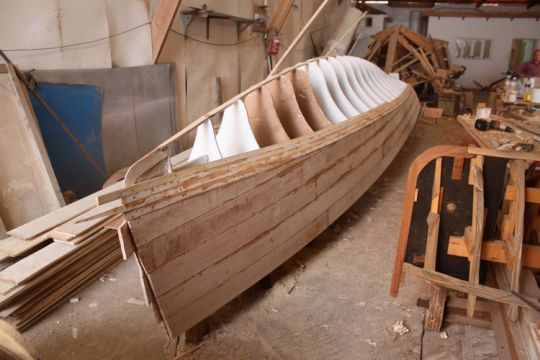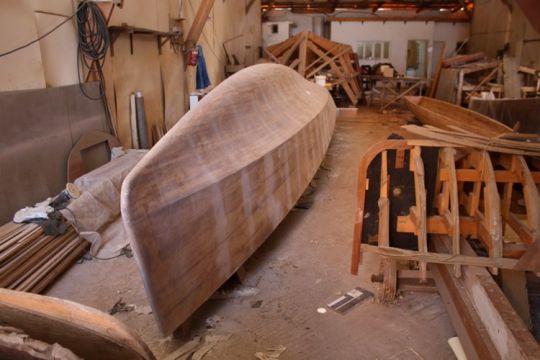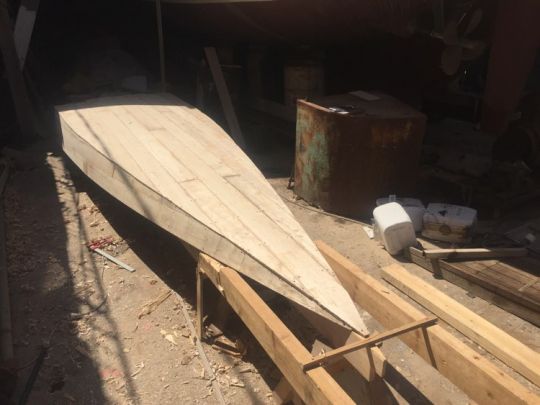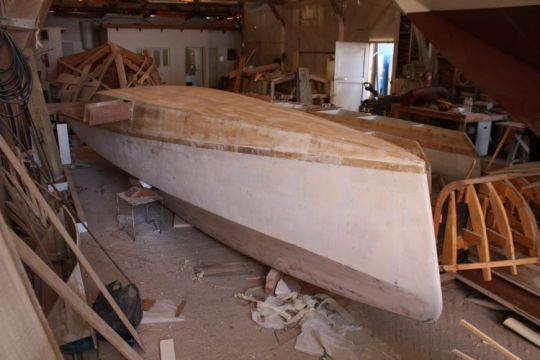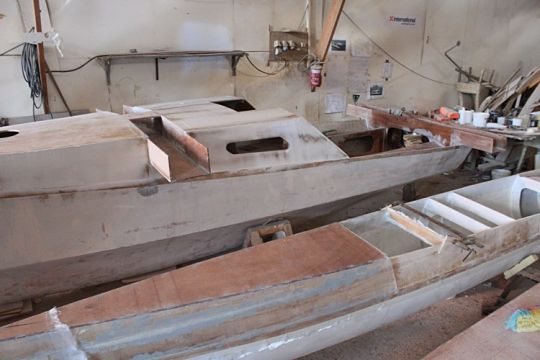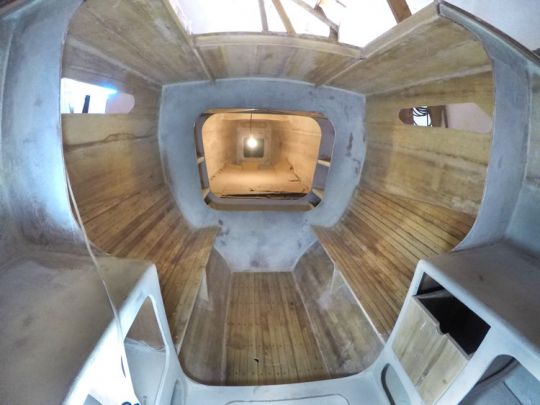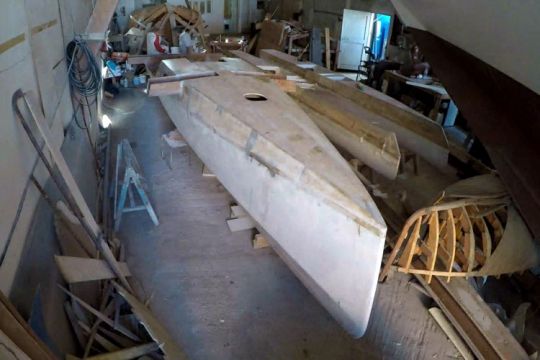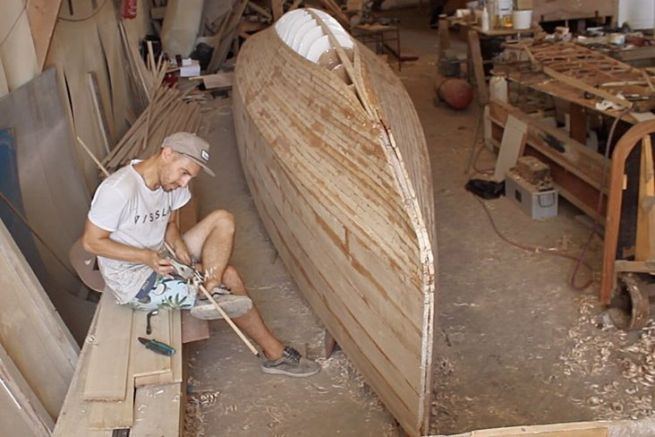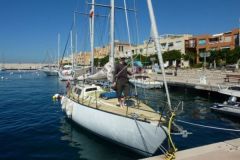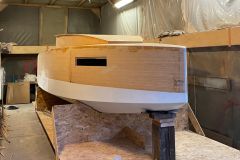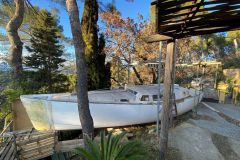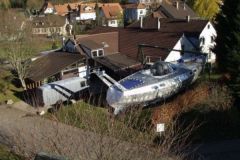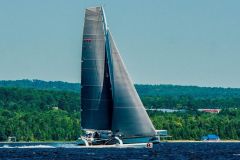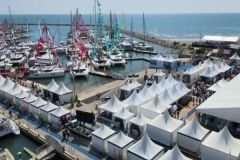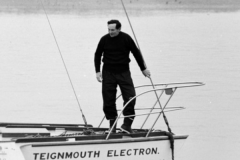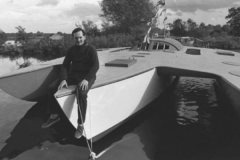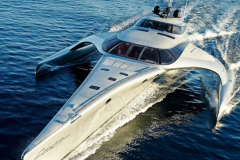François Jaubert is an architect. As much as he has a degree in building construction, he has also trained in naval architecture. As part of his graduation project, he designed a 7 m trimaran. An idea he had for himself.
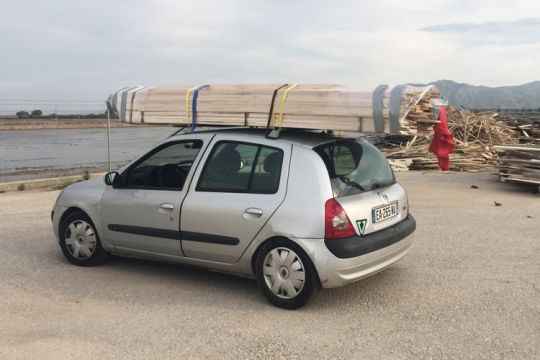
An eco-built trimaran
But this nature lover wanted to show that it was possible to build ships in an environmentally responsible way. For this young graduate, building boats produces too much waste: loss of resin and fabrics, but also too many consumables such as tarpaulins used for infusion or tear-off fabrics for finishing touches. For his trimaran, he decided to reduce this waste as much as possible and above all to use short supply circuits. Thus this Mediterranean sailor has decided that all the components of his multihull will come from around the edges of the Big Blue.
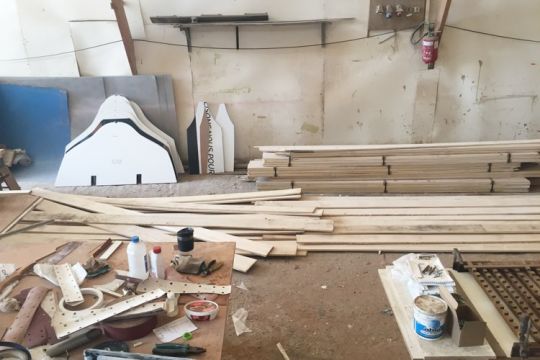
A human-sized construction site
With a drop-off point in a shipyard in Tunisia, he started by fetching the wood from Spain directly from a plantation. He will need 250 kg of wood to build the 3 hulls and the interior fittings. Once this wood is on the roof of the car, he goes to Barcelona to collect the cans of bio-sourced resin.
Entering Tunisia was not easy to explain to the customs what to use this strange load for. Finally the shipyard can start and the hulls are built upside down in strip planking on a dummy. The result is so light that the boat can be turned over with a few people. A simple 200 g glass cloth (very thin) is just there to protect the wood.
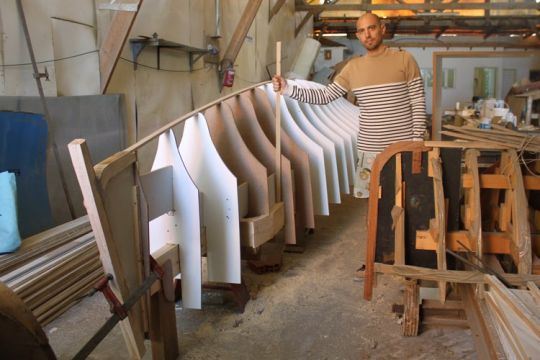
Lightweight and efficient
His trimaran is ultra-light since he weighs 600 kg finished. If the hulls are in stip planking, the couples are in plywood. It is a folding model by raising the link arms (like the Farier). With this boat, François would like to cross the Mediterranean to return to France and thus complete the loop. But with its very elaborate hull shapes and the complexity of making folding link arms, François does not recommend this type of plan for an amateur builder.
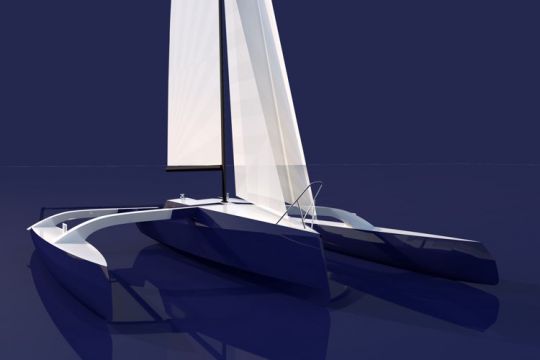
One year for a 7m trimaran
It took François a year of work to build the 3 hulls of his boat. For this he just used a screwdriver, a jigsaw and a sander (which has just given up...). If he is impressed by the working conditions in this country, he also remains perplexed: "In Tunisia, we do everything with nothing, but often there is nothing..." Today, he has to return to France to get some abrasive and coating to completely finish his hulls. It must be said that VIDOC did not help him with the supplies. "I feel like I made my boat with a knife and wood..."
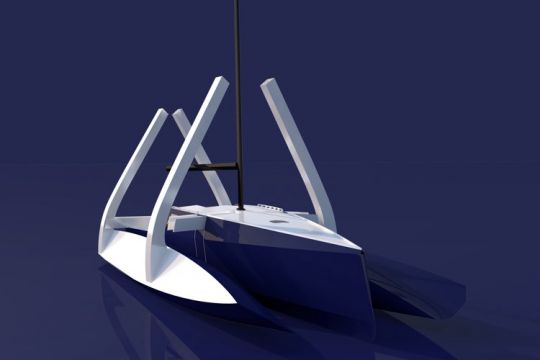
In need of finance
The project is reaching a blocking stage. Indeed, François no longer has the finances to buy a mast (about 4000 euros) and sails (mainsail + jib = 2500 euros and gennaker = 1800 euros). For the moment, counting the trips, the hulls have come back to him at 13,500 euros, i.e. a boat that will be navigable at around 21,000 euros. The 3000 euros that he had to give up to the customs officer to bring the goods into the country had not really been budgeted for... He is therefore looking for one or two partners who support his idea and would support his approach.
